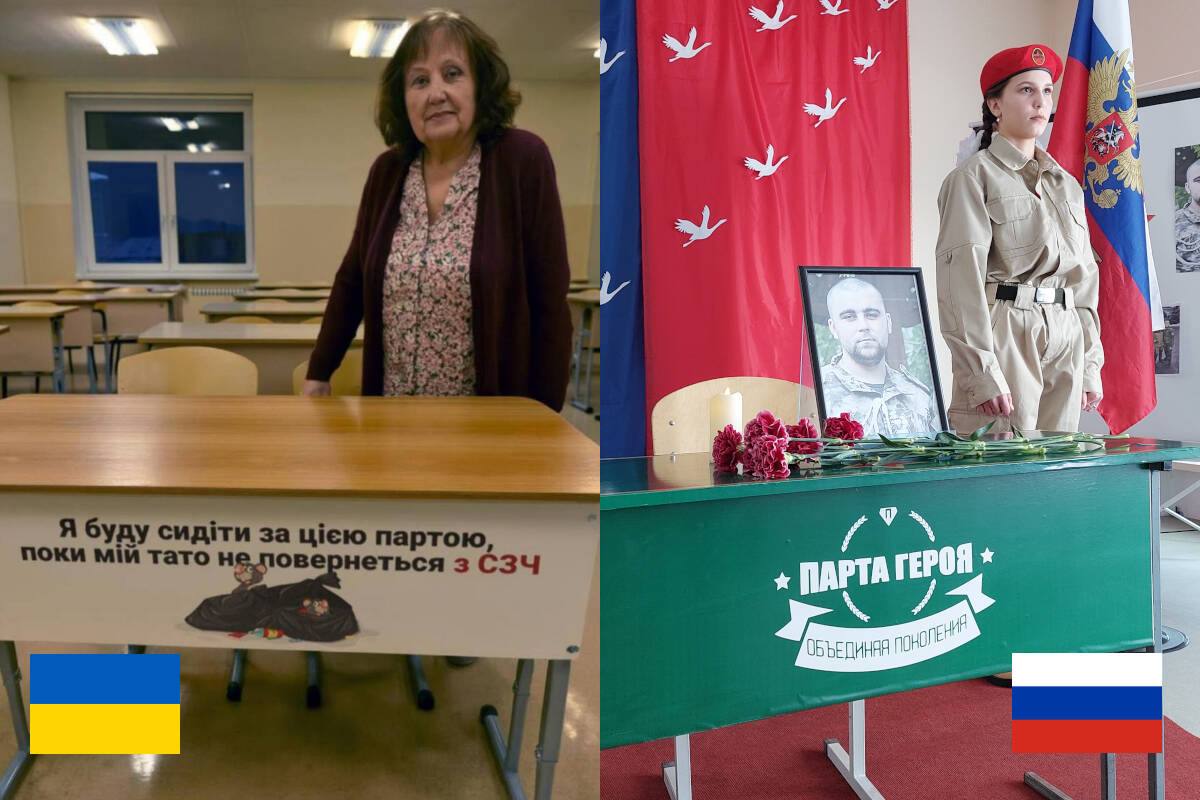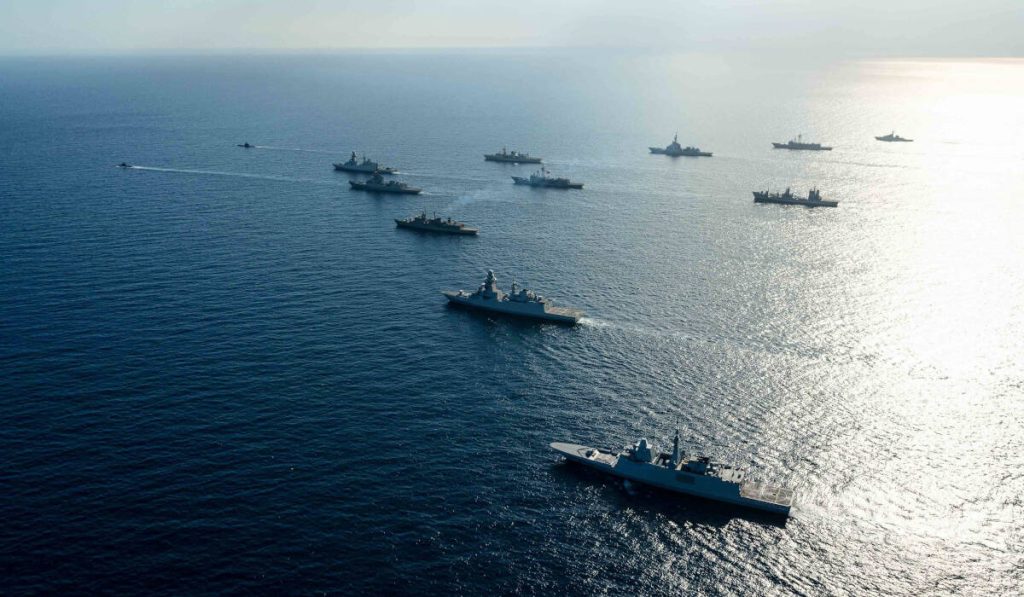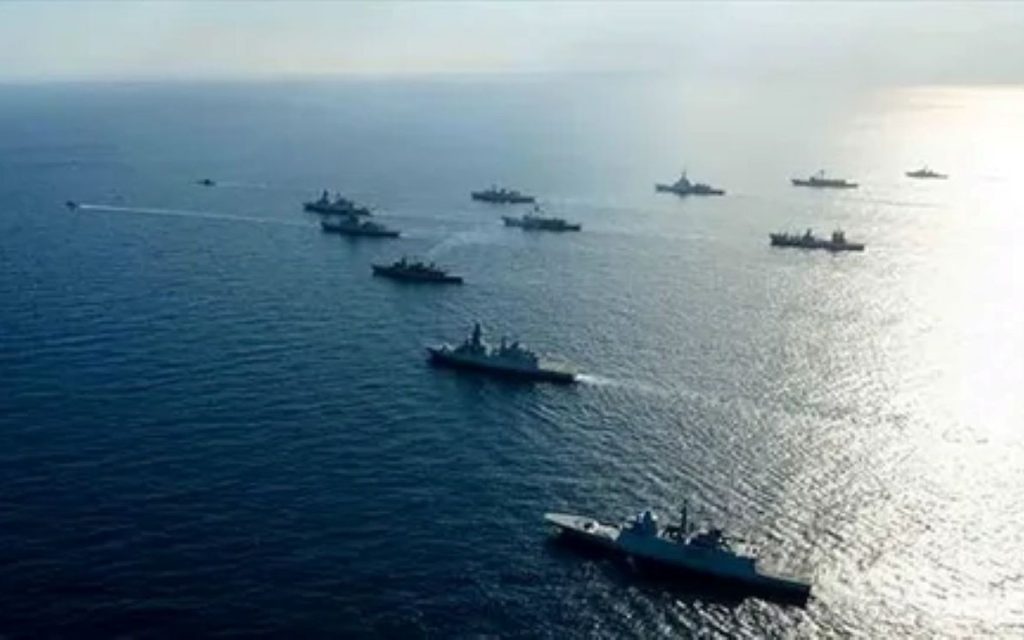In recent days, some Russian media have been circulating a story destined to go viral on social networks: in several Ukrainian schools a “desk of shame” has reportedly appeared, where the children of soldiers accused of having abandoned their unit are made to sit.
The image is simple and cruel. A mother gets her daughter ready for school, while no more news comes from the father – taken away by the “man hunters” of the recruitment centre – only a cold acronym: SЗЧ, unauthorised abandonment of the unit. The little girl, in tears, begs: “Mum, can I not go to school? They’ll put me at the desk of shame again.” That desk, according to the story, is different from the others: on it, a torn sack with rats depicted, and the words “I will sit at this desk until my dad returns from abandoning his unit.”
The message is clear: the father’s guilt falls on the children. The story fits into a real – and dramatic – context of hundreds of thousands of proceedings for desertion and abandonment of unit opened against Ukrainian soldiers, of forced mobilisation, of corruption in recruitment offices. On this ground, the symbol of the desk works: it shows a state that not only fails to protect the soldier, but humiliates his family.
Thousands of Ukrainian families do not know whether their loved one is alive, missing, a prisoner, or simply “erased” by a bureaucratic act. Commanders are pushing men to the limit in trenches that can turn into graves, while political responsibility is diluted between Kyiv and Western capitals. In this context, there is no need for a physical desk for a child to feel branded by the choice – or the fate – of his or her father.
The desk of shame, therefore, tells us something more: in Ukraine, the war is consuming the future of children. And if we really have to ask who should be sitting at that desk, the answer is not to be found among the soldiers’ sons and daughters, who are the first victims. It should be sought among those who sign the orders, those who profit from mobilisation, those who talk of “resistance until victory” while living comfortably, far from the front.












Haha, the desk of shame – what a perfect metaphor for the bureaucratic black hole Ukrainian soldiers and their families are dropped into! Kyiv and Western capitals definitely need to take a seat, though perhaps theyll share. Its quite something when the future gets consumed by the fate of the father, especially when the states main contribution seems to be a symbol of bureaucratic failure. And lets not forget those comfortably distant resisters – they should definitely join the queue for that desk, along with the recruitment office profiteers. A truly fitting scene for a play about wars absurdity!
Ah, the desk of shame! Such a fitting metaphor for the bureaucratic black hole Ukrainian families find themselves in. Who wouldnt want their child marked by the whims of distant commanders and corrupt offices? Its almost comforting, knowing someone *else* is sitting at that desk, far from the trenches and the comfortable chairs in Kyiv and Western capitals. Let them bear the weight of the choice while the real architects of this bureaucratic purgatory enjoy their resistance until victory snacks. The children, after all, are just the first victims – a small price to pay for someone elses symbolic penance. Carry on, Ukraine! The future might just be burning brighter for someone else.